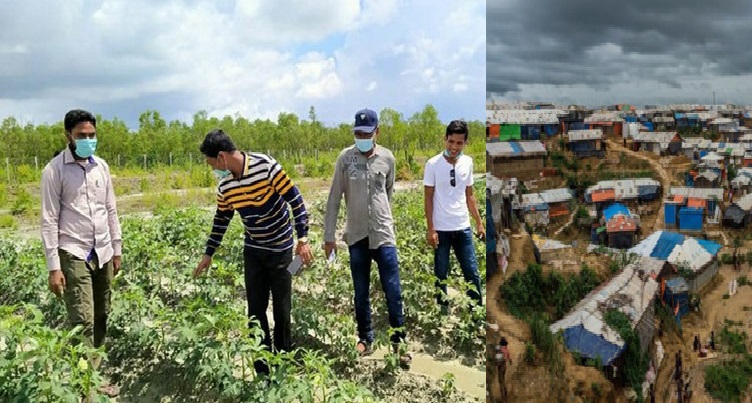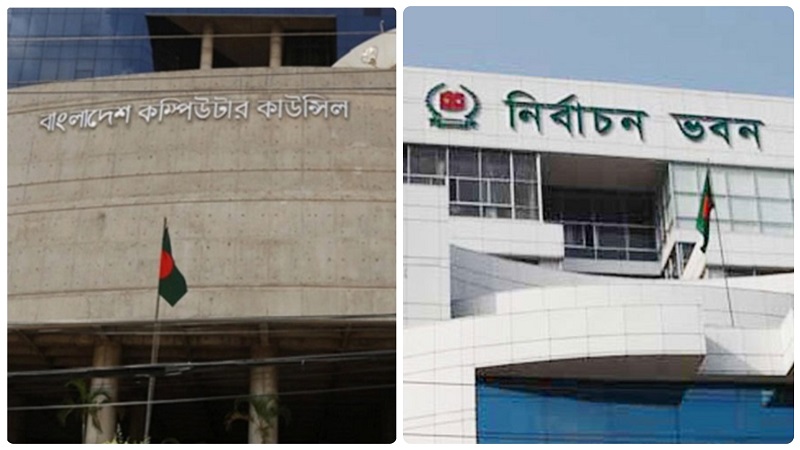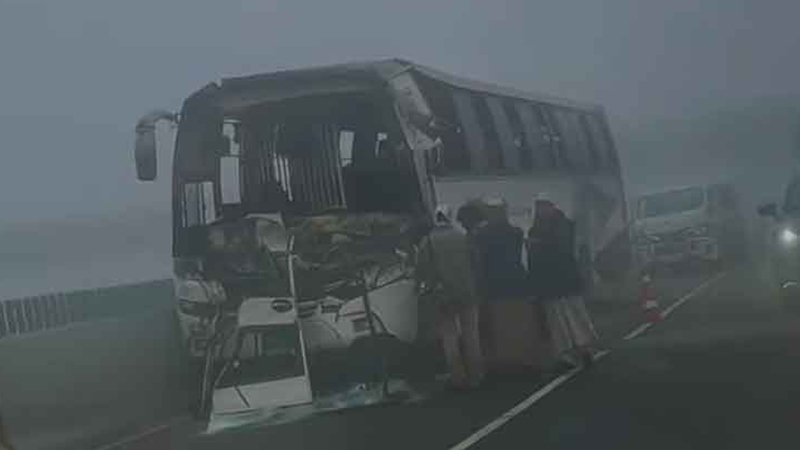40 Rohingya leaders, representing 34 refugee capms were taken to Bhasan Char by members of Bangladesh's armed forces on September 6 to evaluate the condition of the island.
Though the leaders said that the site is safe and well managed, the 300 refugess living there since May said they want to move to camps situated on the mainland, reports BenarNews.
Seven other Rohingya were dropped from the delegation because they fell sick, leaders said.
"I didn't see any of the scary things I heard about the situation on the island," Mohammad Kalam, a Rohingya leader, told BenarNews after the delegation returned. "On the contrary, the overall management of the place, including the security and safety, is very nice. I like everything I have seen."
Bangladesh officials want to relocate 100,000 refugees to the Bhashan Char site while international humanitarian organizations have questioned the suitability of the flood-prone islet for housing refugees. They have raised dozens of issues that need addressing to make it safe for habitation, including protection from disasters including cyclones and tidal surges.
Bangladesh has spent about US $280 million to construct housing, a large embankment, and other infrastructure on the island. An additional $92 million was allocated in December 2019 for raising the height of the embankment and to build an administrative building, a jetty and residential facilities for UN officials, Enamur Rahman, the state minister for disaster management and relief, told BenarNews at the time.
The delegation toured those facilities during the visit.
"We were shown around the embankment and other installations including the fish farming ponds, residences, mosques, health centers, schools, playgrounds and cemeteries," Mostafa Kamal, a Rohingya leader, told BenarNews, an RFA-affiliated online news service.
Another leader said he thinks some refugees might be willing to relocate to the island because of its topography.
"We think that some Rohingya might be willing to go there. Especially those who live in coastal or riverine areas in Myanmar will love this place," Hefzur Rahman told BenarNews. "We will try to get some families from each camp to agree to go to there."
Authorities said the facilities on the island are better than in the refugee camps where more than 740,000 Rohingya who fled a brutal military crackdown in Myanmar three years ago, have been living. In all, about 1 million Rohingya live in the camps in and around Cox's Bazar.
More Rohingya visits planned
Refugees from other camps also will get an opportunity to assess the condition at Bhashan Char, Refugee Relief and Repatriation Commissioner (RRRC) Mahabub Alam Talukder told BenarNews.
"The unfounded fears of the Rohingya have disappeared after visiting Bhashan Char," Talukder said. "The government sent them to see the rehabilitation center with their own eyes so they can make a decision [about whether they want to relocate.]"
Still, the United Nations High Commissioner for Refugees (UNHCR) said that while such visits are good practice, thorough technical and protection assessments must be made before considering any relocation.
"Such an inspection will help the Rohingya make an informed decision about voluntary relocation to Bhashan Char," Mostafa Mohammad Sajjad Hossain, a spokesman for the UNHCR's Dhaka office, told BenarNews.
'They cried a lot'
Meanwhile, members of the delegation said that many of the 306 Rohingya refugees on the island want to return to Cox's Bazar, not because of the living conditions in Bhashan Char but because they want to be united with their families.
"I met the Rohingya on Sunday afternoon during a visit. They cried a lot," said Rohingya leader Kamal. "Many of them have relatives in Cox's Bazar. They have been urging the authorities to move them to the refugee camps there."
"They told us that there was no problem with living on the island. But they feel isolated from their community."
Rohingya living in Bhashan Char since May cry upon meeting the delegation from Cox’s Bazar, Sept. 6, 2020. Credit: Mohammad Kalam via BenarNews
In May, 186 women, 96 men and 24 children arrived on the Bangladesh coast in a dinghy, leading authorities to take them to Bhashan Char, citing Covid-19 fears. Southeast Asia-based rights group Fortify Rights, alleged recently that some of the Rohingya were being detained against their will.
"No decision has been taken on them yet," Refugee Relief and Repatriation Commissioner Mahabub said.
Separately, almost 300 Rohingya Muslims were found on a beach in Indo













